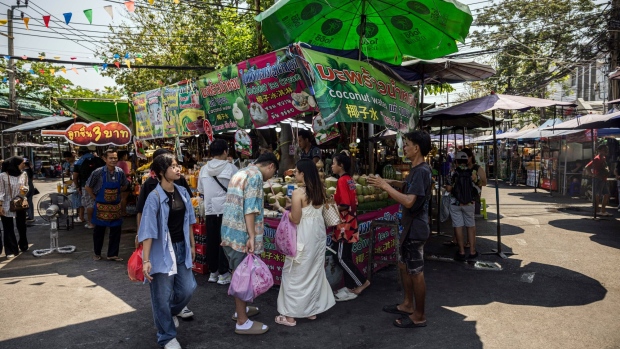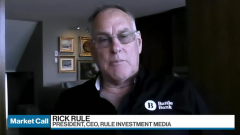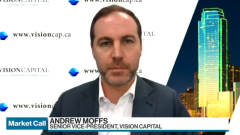May 19, 2024
Thailand’s Economic Growth Slows Even as It Beats Estimate
, Bloomberg News

(Bloomberg) -- Thailand’s economy grew better-than-expected in the first quarter, fueled by tourism and private consumption, easing urgency on the central bank to respond to the government’s calls for lower borrowing costs. The baht rose.
Gross domestic product in the three months through March increased 1.5% from a year earlier, the National Economic and Social Development Council said Monday. While that’s slower than the 1.7% pace in the fourth quarter and lagged the performance of its peers in Southeast Asia, it was well above the 0.8% median estimate in a Bloomberg survey. One analyst correctly predicted the print, while the rest expected the slowest expansion post-pandemic.
Quarter-on-quarter, the economy expanded 1.1% compared with a median estimate for 0.6% gain. GDP contracted a revised 0.4% in the October-December period. The baht extended gains after the data, rising 0.5% against the dollar at 11:41 a.m. local time.
The better-than-forecast GDP report may dial down pressure for the Bank of Thailand to cut borrowing costs at its next meeting in June. Tensions between the government and the central bank appear to have cooled after Finance Minister Pichai Chunhavajira last week said they would leave monetary decision-making to the BOT.
Access to lending and liquidity were the top priority instead of the level of interest rates, Pichai had said — a view that NESDC chief Danucha Pichayanan echoed on Monday.
Beyond the headline numbers, though, “broad-based weakness” will continue to support the government’s case for rate cuts, according to Bloomberg Economics’ Tamara Henderson.
While robust private consumption helped offset the 2.1% decline in government spending, its pace of growth was much slower at 6.9% in the first quarter from 7.4% in the October-December period. The contraction in investment deepened to 4.2% from 0.4%.
The NESDC also presented a more sober GDP outlook despite the surprise turnout. It reduced the midpoint to 2.5% growth from a previous 2.7% estimate even as it revised projections for tourism and revenue from the sector higher.
The state planning agency estimated that Prime Minister Srettha Thavisin’s roll-out of the 500-billion-baht ($14 billion) cash handout may add about 25 basis points to economic expansion this year with more than 40% of the freebies distributed in the fourth quarter and the rest in 2025, NESDC’s Danucha said.
While Danucha maintained his view on Monday that monetary and fiscal policies must be aligned, he stressed the importance of access to credit. In February, he said monetary policy should step in to support the economy.
The central bank’s policy rate has stood at a decade-high 2.5% since September even as consumer prices slipped into negative territory in the fourth quarter of 2023 and GDP growth stuttered.
Thailand’s first-quarter GDP growth remains below the nation’s growth potential, said Pisit Puapan, director of the Finance Ministry’s Fiscal Policy Office. Industrial and agricultural output will have to improve to bolster the economy, he said.
Rate Cut Calls
“We expect the BOT to cut its benchmark interest rate by 25 bps before year-end,” Henderson said in her note. Standard Chartered Plc economist Tim Leelahaphan said the state of the Thai economy still justifies their prediction for a quarter-point cut next month although he sees risks to that call as the BOT remains hawkish.
Headline inflation finally quickened in April, showing the first gain in the past seven months. The NESDC expects consumer price gains to average 0.1% to 1.1% this year.
The BOT said last month that holding the rate steady had given it “policy optionality” to deal with currency volatility, geopolitical risks and uncertainty around the Federal Reserve’s pivot to easing.
Southeast Asia’s second-largest economy is expected to pick up pace in the second half, supported by public spending after the much-delayed passing of the national budget. The implementation of the cash handout is seen to boost consumption although critics have warned this could fan inflation and set back fiscal consolidation.
The upside surprise in GDP was “very encouraging for the baht,” according to Wee Khoon Chong, senior market strategist for Asia Pacific at Bank of New York Mellon Corp. in Hong Kong. “We see baht depreciation as having been excessive, and market narrative is likely to shift to the positive contribution from tourism and away from uncertainty surrounding digital wallet program.”
--With assistance from Tomoko Sato, Anuchit Nguyen, Patpicha Tanakasempipat, Hooyeon Kim, Cecilia Yap and Michael J. Munoz.
(Updates with fiscal policy director’s comments on the 12th paragraph)
©2024 Bloomberg L.P.






